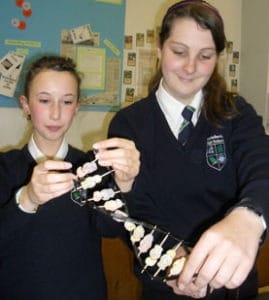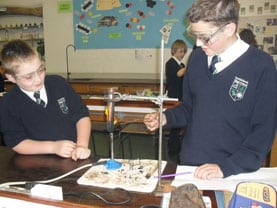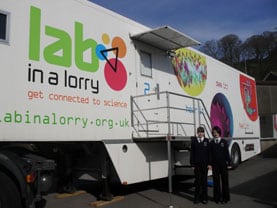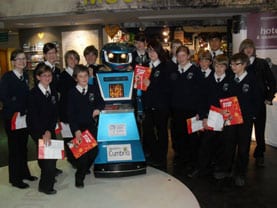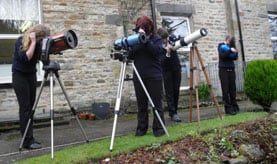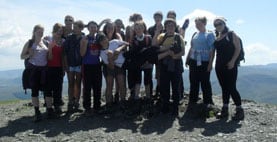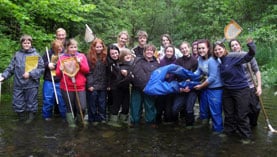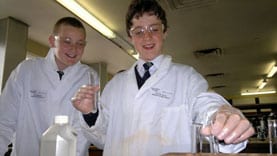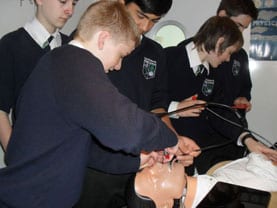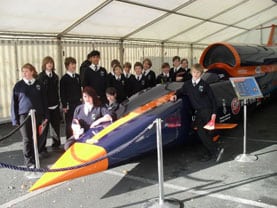Science
Curriculum Statement: Science
Science Department:
Miss S. Queen Head of Science
Mr D. Greenwood Teacher of Science
Dr. J Hunter Deputy Headteacher
Purpose of study
A high-quality science education provides the foundation for understanding the world through the specific disciplines of biology, chemistry and physics. Science has changed our lives and it is vital to the world’s future prosperity, and all students will be taught essential aspects of the knowledge, methods, processes and uses of science. Through building up a body of key foundational knowledge and concepts, students are encouraged to recognise the power of rational explanation and develop a sense of excitement and curiosity about natural phenomena. They are encouraged to understand how science can be used to explain what is occurring, predict how things will behave and analyse causes. Giving the young people who leave school post-16 the independent thinking skills and critical analysis to question information given to them and make informed decisions.
Aims
Our curriculum aims to ensure that all students:
- Develop scientific knowledge and conceptual understanding through the specific disciplines of biology, chemistry and physics;
- Develop understanding of the nature, processes and methods of science through different types of science enquiry that helps them to answer questions about the world around them;
- Are equipped with the scientific knowledge required to understand the uses and implications of science, today and for the future.
The national curriculum and the big five ideas for each of the separate disciplines, as developed by the BEST Evidence Science Teaching project (York University), underpins our curriculum sequencing and its implementation.
BIG ideas in Biology:
- The cellular basis of life;
- Heredity and life cycles;
- Organisms and their environment;
- Variation, adaptation and evolution;
- Health and disease.
BIG ideas in Chemistry:
- Substances and properties,
- Particles and structure,
- Chemical reactions,
- Earth chemistry,
- Dynamic Earth
BIG ideas in Physics:
- Matter;
- Forces and motions;
- Waves;
- Electricity and magnetism;
- Earth in space;
Students arrive at Settlebeck School from a range of feeder primary schools situated within both rural and urban contexts. Those contexts impact on student perceptions of science and the knowledge, skills and understanding they have developed. As a department, early assessment of students’ individual disciplinary and substantive knowledge and understanding of the fundamental concepts, which underpin the ‘big ideas’ in science, inform our curriculum. The development of tier three, subject specific vocabulary is embedded throughout the curriculum to ensure that students are able to transfer knowledge between the disciplines and in the wider world.
In science students learn through:
Independent enquiry, modelling and explanations. Learning takes place through either structured group work, individual problem solving or whole class. There is an aspect of rote learning in some topics which is then applied and understanding deepened as the students’ progress through the KS4 curriculum.
As students become more self-aware, metacognitive strategies using simple skills to help progress and problem solve are learnt. We aim to develop analytical thinking and interpretation of data, and constructing explanations to either communicate information or develop evaluations
For example, in Year 7 students learn how cells are the building blocks of life and progress to learning how cells work together to form tissues, organs, systems and then organisms. As they progress further, they learn more abstract ideas such as the presence of organelles and their role with in processes e.g., photosynthesis and develop and understanding of how organisms have evolved to function in their different capacities in the living world.
We engage students in scientific inquiry and through the application of critical thinking skills they learn to come to a conclusion based on data and evidence. Practical skills are modelled to ensure that students understand scientific convention, the importance of accuracy and conduct experiments in line with good practice. Our curriculum promotes lifelong learning through engagement with current research and developments.
The KS2 National Curriculum programme of study informs our KS3 curriculum. All students are assessed on entry to Year 7 to assess their individual knowledge and skills. The information from this assessment informs our curriculum and its implementation. For example, where knowledge and skills from the KS2 curriculum are not secure we adapt our curriculum to ensure that they have the foundation for progression in science.
All disciplines within science are interwoven and our curriculum aims to ensure students make the connection between biology, chemistry and physics and the shared concepts. As students’ progress, new knowledge is systematically introduced to build on prior knowledge and understanding. This allows students to progressively understand more abstract concepts. Spaced learning of concepts and the ‘big ideas’ across the disciplines within different contexts, deepens their understanding. For example, In Year 7 and 8 students learn about atomic structure through modelling the basic subatomic particles. In Year 9 and 10 students are introduced to the electronic structure; links are made to the particle model and matter topic within physics. This approach ensures that students know and remember more.
The science curriculum makes links to learning in other subjects e.g. mathematics, and where there are different applications of knowledge or a particular skill they are made explicit.
When designing our curriculum, we have considered the individual needs of our students. To ensure that students with SEND have the opportunity to develop the same knowledge and skills as their peers we adopt a range of strategies within the classroom. For example, increased scaffolding, modification of tasks which involve extended writing, the use of equation sheets, use of tactile resources and braille. The curriculum offer at KS3 is broad, ensuring that all students can progress at their own rate.
As scientists we like to collect a range of evidence to assess progress. Prior knowledge is assessed at the start of each new topic and the outcome of these assessments used to inform the curriculum. All lessons have an element of formative assessment to ensure that misconceptions are addressed quickly. At the end of each topic, and the end of year assessments test substantive and disciplinary knowledge and where necessary the curriculum is adapted to ensure that misconceptions and gaps in knowledge and skills are addressed and to ensure that all students are making progress.

